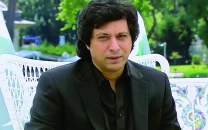Getting to sleep is monkey business
A lot of people find listening to these noises useful in getting to sleep.

The poll, which questioned 2,000 adults about falling asleep at night, found that birds twittering and rainforest noises are the most soothing sounds for one in five people at bedtime, with fewer than one in 10 relying on counting sheep to send them into slumber.
"One thing these noises do is stop intrusive thoughts," John Shneerson, President of the British Sleep Society and consultant at Papworth Sleep Centre, told Reuters.
"These are normally worries about the previous day, or worries about tomorrow -- any active thoughts that prevent people from drifting into sleep. A semi-repetitive noise like wind blowing or waves crashing, which has an occasional rhythm change, works by distracting you. The sound can't be too boring but should not be so stimulating that you actively think about it -- it has to be something in the middle," Shneerson said.
A lot of people find listening to these noises useful in getting to sleep, although this has not yet been thoroughly researched, he said.
While the relaxing properties of natural sound may not come as a surprise, noises generally considered to be irritating, such as passing traffic and ticking clocks can also be soporific, according to the survey.
Sounds like these are being piped into safari-themed hotel rooms at the Chessington World of Adventure Resort, the theme park which commissioned the study, to help guests get 40 winks.
"Having researched further into what nature noises people want to hear in their rooms, we've trialled it out with a number of families who have stayed in our on-site hotel and they said it really helped them doze off at night," David Smith at the Chessington World of Adventures Resort said in a statement.
Since the average Briton sleeps for around six hours and 48 minutes a night, drifting off quickly is more important than ever to avoid falling asleep at your desk the following day.
"My advice for getting a good night's sleep would be avoid caffeine in the evening and try to stick to a regular sleeping pattern by going to bed and waking up at the same time every day, despite work and social pressures," Shneerson said.



















COMMENTS
Comments are moderated and generally will be posted if they are on-topic and not abusive.
For more information, please see our Comments FAQ